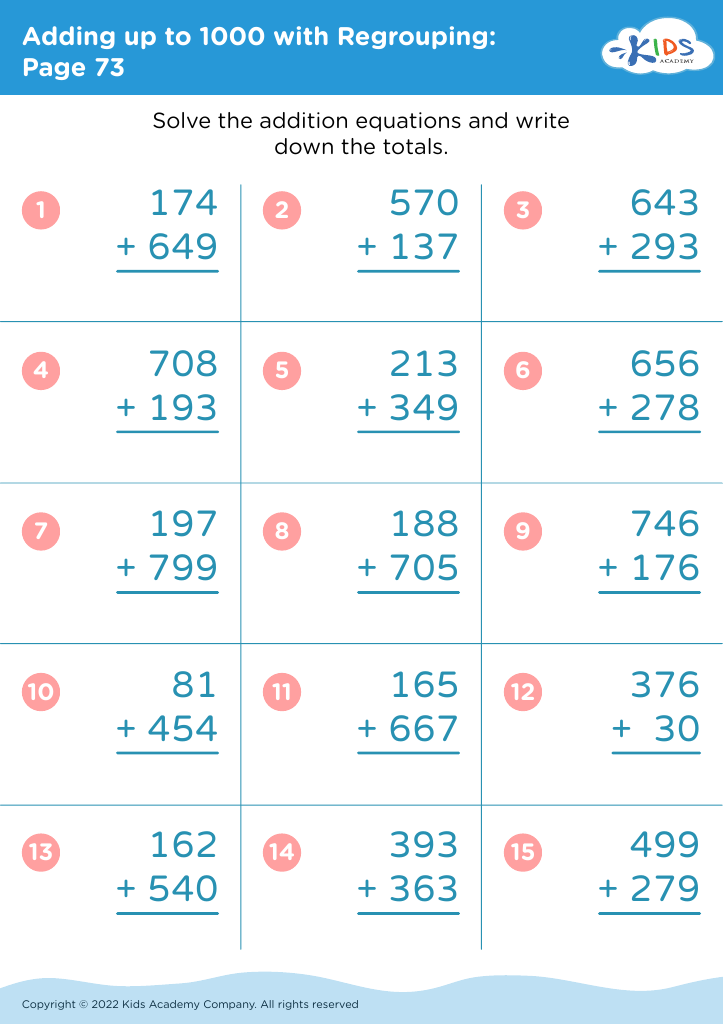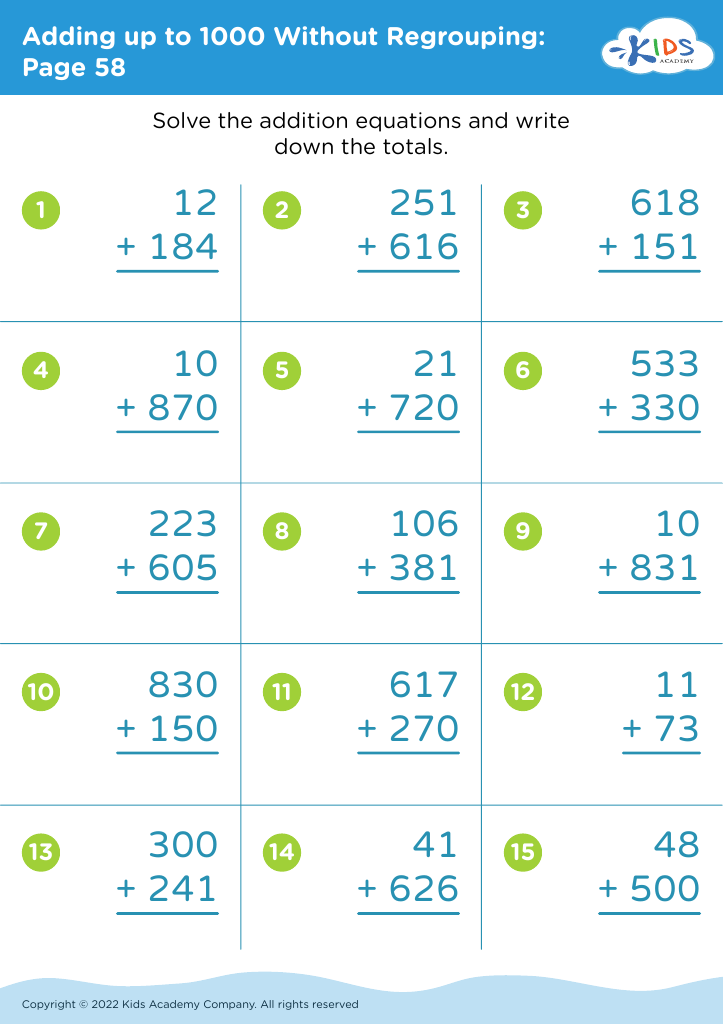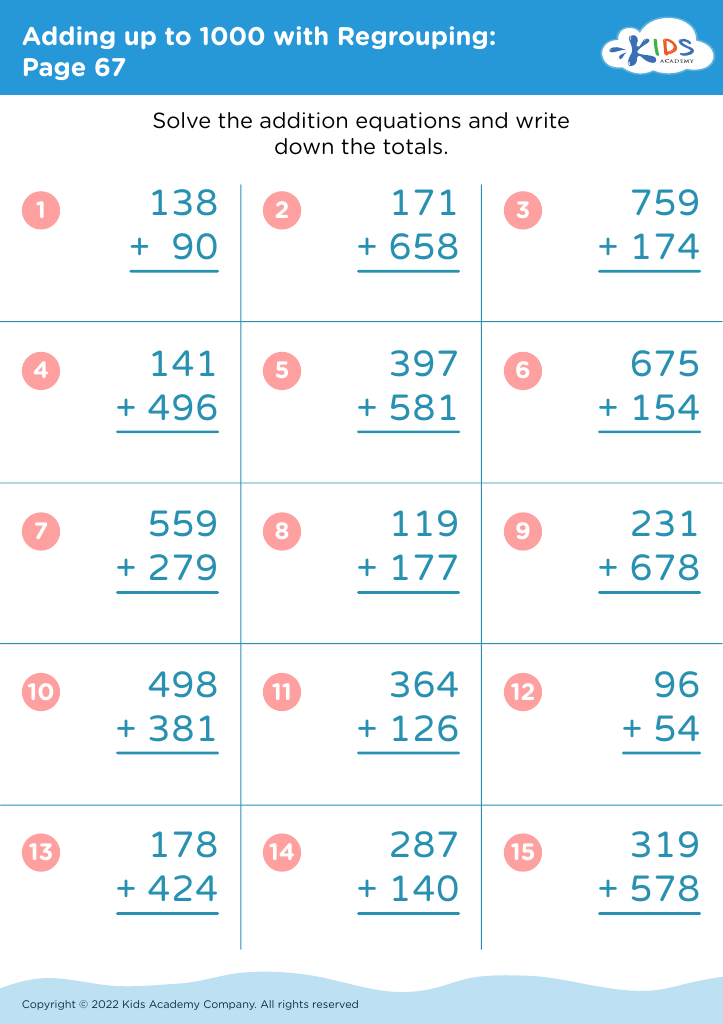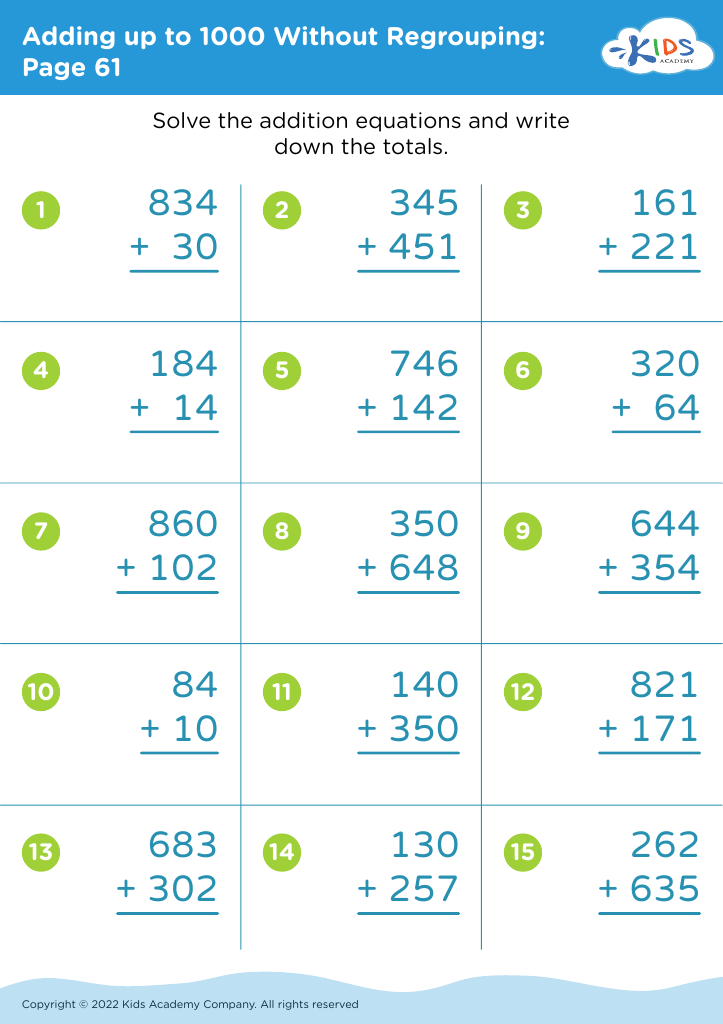Recognizing shapes Addition & Subtraction Worksheets for 9-Year-Olds
8 filtered results
-
From - To
Explore our comprehensive "Recognizing Shapes Addition & Subtraction Worksheets for 9-Year-Olds" designed to enhance mathematical skills in a fun and engaging way. These specially crafted worksheets blend the fundamentals of geometry with essential addition and subtraction exercises, helping young learners master both recognizing shapes and arithmetic with ease. Our meticulously designed content aims to boost problem-solving abilities, enhance critical thinking, and promote a love for learning. Perfect for classroom use or home practice, these worksheets cater to the educational needs of 9-year-olds, ensuring they enjoy their learning journey while gaining confidence in math.
Recognizing shapes, addition, and subtraction are foundational skills, essential for the cognitive development and academic success of 9-year-olds. Parents and teachers play a significant role in nurturing these skills, which are influential for several reasons.
First, understanding shapes is key for developing spatial awareness and geometry knowledge, which are crucial for subjects like mathematics, art, and even science. Recognizing and differentiating shapes improves visual perception and problem-solving abilities, aiding tasks such as reading, writing, and interpreting complex structures.
Second, addition and subtraction are fundamental arithmetic operations. Competence in these areas builds a strong mathematical foundation necessary for advanced topics like multiplication, division, fractions, and beyond. Furthermore, proficiency in basic arithmetic enhances logical thinking, numeracy skills, and the ability to perform everyday tasks—such as shopping efficiently or managing time and money.
Fostering skills in these areas through engaging activities helps build confidence and encourages a positive attitude toward learning. Incorporating real-life examples makes these concepts tangible and relatable, nurturing a child's intrinsic motivation and curiosity. Recognizing the importance of these early foundational skills ensures that children are better prepared for their future educational endeavors and daily life challenges, setting them up for long-term success.





























